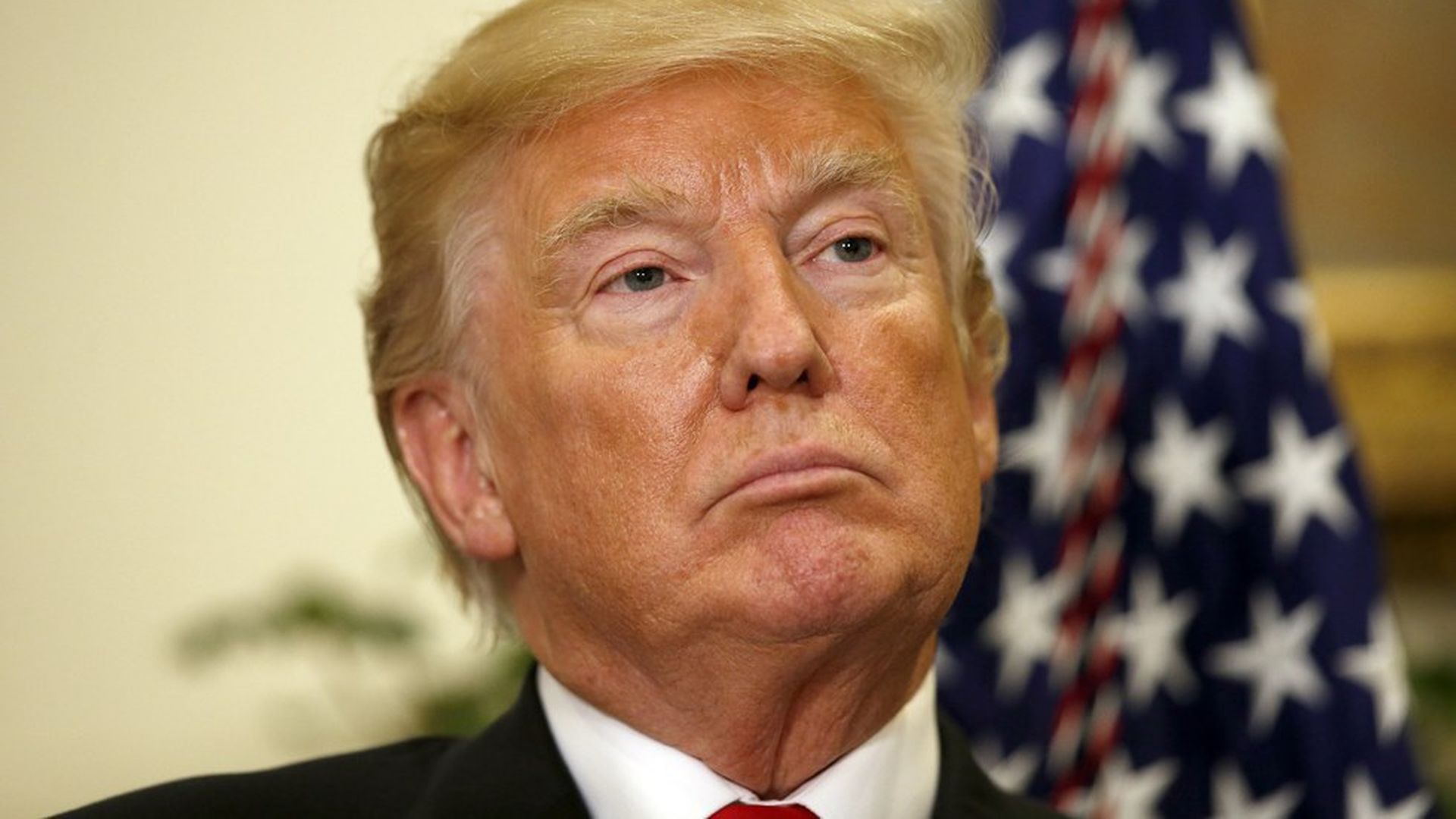How Trump thinks about pardons
Add Axios as your preferred source to
see more of our stories on Google.

Alex Brandon / AP
President Trump triggered front-page coverage across the land by tweeting yesterday that "all agree the U. S. President has the complete power to pardon."
All don't agree. But associates say Trump's position on pardons (and willingness to fire special counsel Bob Mueller) is no surprise in light of the contempt he showed for a 40-year tradition by refusing to release his tax returns, and his decision to fire FBI Director Jim Comey against the advice of some top West Wing officials (to say nothing of the fact that it was one of the dumbest political mistakes in the modern era).
The takeaway: When Trump makes decisions, he doesn't think in terms of constitutional or ethical lines. He doesn't torture himself over the separation of powers. Instead, he still thinks of himself as a CEO trying to gain advantage in transactions. He wants to brawl, and he doesn't care how it looks.
Remember his litigious past: This isn't a unique approach for him. It's standard operating procedure.
A self-pardon by Trump would be "a first in all of human history," according to a WashPost op-ed today ("Trump can't pardon himself") by Harvard's Larry Tribe, along with Richard Painter (chief White House ethics lawyer for President George W. Bush) and Norman Eisen (chief White House ethics lawyer for President Obama).
- "We know of not a single instance of a self-pardon having been recognized as legitimate. Even the pope does not pardon himself."
- A more likely scenario would involve pardoning relatives or associates. That, though, could trigger defections from Republican lawmakers that could weaken Trump's hold on office.
Harvard Law Professor Noah Feldman tells CNN's Laura Jarrett that the structural arrangement putting the president in charge of law enforcement as the head of the executive branch "works just fine until the president or those close to him come under investigation."
"So if the President tries to fire Mueller or gets him fired, 'it would expose a deep flaw in constitutional design.'"
Be smart: Aides say the quickest way to get Trump to do something is to tell him he can't, or argue that it's contrary to tradition. You always have to give him an alternative, and sometimes you can persuade him.
